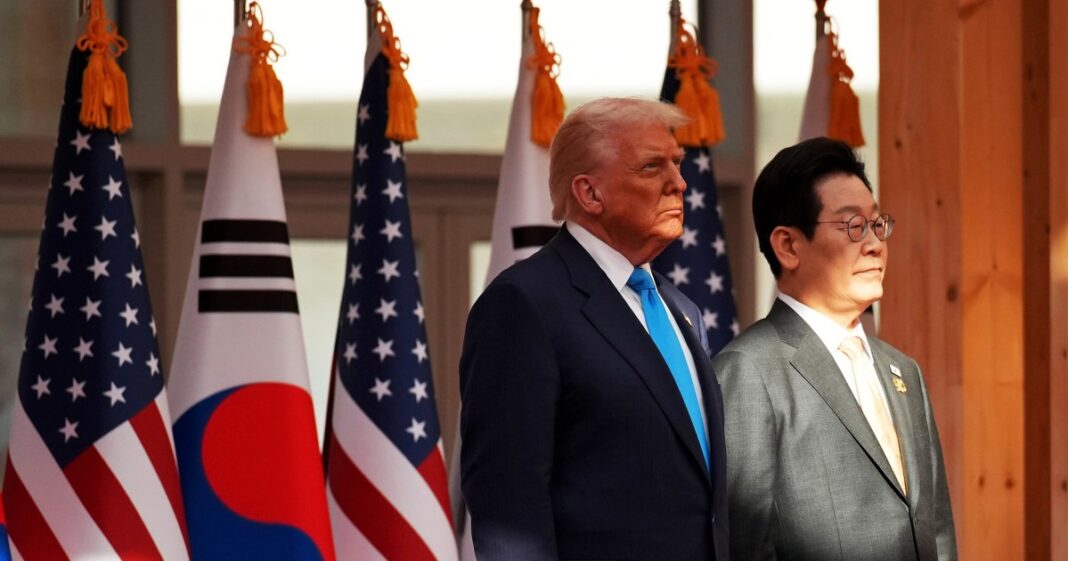Bipartisan Conversations in the Senate: A Glimmer of Hope?
Senate Majority Leader’s Optimism
In a recent statement, Senate Majority Leader John Thune, R-S.D., expressed an increasingly positive outlook regarding bipartisan discussions. He noted that conversations are “ticked up significantly,” suggesting that there might be enough interest among moderate Democrats to initiate meaningful change in the current political climate. Thune’s remarks signal a potential shift in the dynamics of ongoing negotiations, highlighting the possibility of collaboration across party lines.
The Role of Moderate Democrats
Thune emphasized that while the leadership of the Democratic Party appears to be somewhat immobilized, many rank-and-file members are still eager to push forward with solutions that address pressing issues. This sentiment reflects a grassroots desire to overcome partisan divides and find common ground on significant matters that affect everyday Americans.
Next Steps in Legislative Actions
Thune mentioned that a vote is scheduled for tomorrow, with a break planned for the weekend, but added a caveat: if negotiations begin to “gel,” there could be a shift in his plans. This highlights the fluid nature of legislative processes, where the urgency of the situation can lead to rapid changes in strategy as lawmakers seek to respond to evolving discussions.
Contradictory Perspectives from Other Senators
Not everyone shares Thune’s optimism. Numerous senators from both parties have publicly stated that they do not feel any closer to a resolution regarding the government shutdown, now entering its 29th day. Senator Thom Tillis, R-N.C., noted that he hasn’t seen “any evidence” of formal negotiations taking place, which raises questions about whether enthusiasm for bipartisanship is being matched by tangible actions.
Stagnation in Leadership Negotiations
Senator Ron Wyden, D-Ore., echoed the sentiment of frustration, indicating that negotiations at the leadership level, particularly involving the Trump administration, remain stagnant. Wyden pointed out the administration’s unwillingness to entertain discussions, a barrier that complicates any potential for finding common ground.
Specific Legislative Proposals
As the discussions continue, specific legislative proposals are on the table. Senator Ben Ray Lujan, D-N.M., criticized Thune for not allowing votes on critical measures aimed at alleviating the impact of the shutdown, particularly regarding funding for the Supplemental Nutrition Assistance Program (SNAP). Lujan’s decision to co-sponsor a bipartisan bill with Republican Senator Josh Hawley underscores a willingness among some lawmakers to prioritize essential services over political maneuvering.
Calls for Action
Lujan put pressure on Thune, emphasizing his role as the gatekeeper for what legislation reaches the Senate floor. He urged Republican colleagues not to block crucial funding for American citizens facing food insecurity. This highlights the urgent human impact of the legislative stalemate, as constituents rely on their elected officials to address pressing needs during the shutdown.
Political Divisions and Potential Solutions
As these discussions unfold, the political landscape remains divided, with senators on both sides expressing doubts about reaching a consensus. The apparent disconnect between Thune’s optimism and the realities faced by other senators illustrates the complexities of bipartisan efforts in a highly polarized environment. The focus remains on whether collaborative solutions can emerge or if entrenched positions will continue to stall meaningful progress.
The Weight of Public Expectation
Amidst these legislative challenges, public pressure is mounting for officials to act decisively. The inherent tension between partisan loyalty and the demands of constituents creates a pivotal moment for senators. As they navigate these discussions, the hope for a constructive path forward hangs in the balance, contingent upon their ability to bridge divides for the benefit of their constituents.



